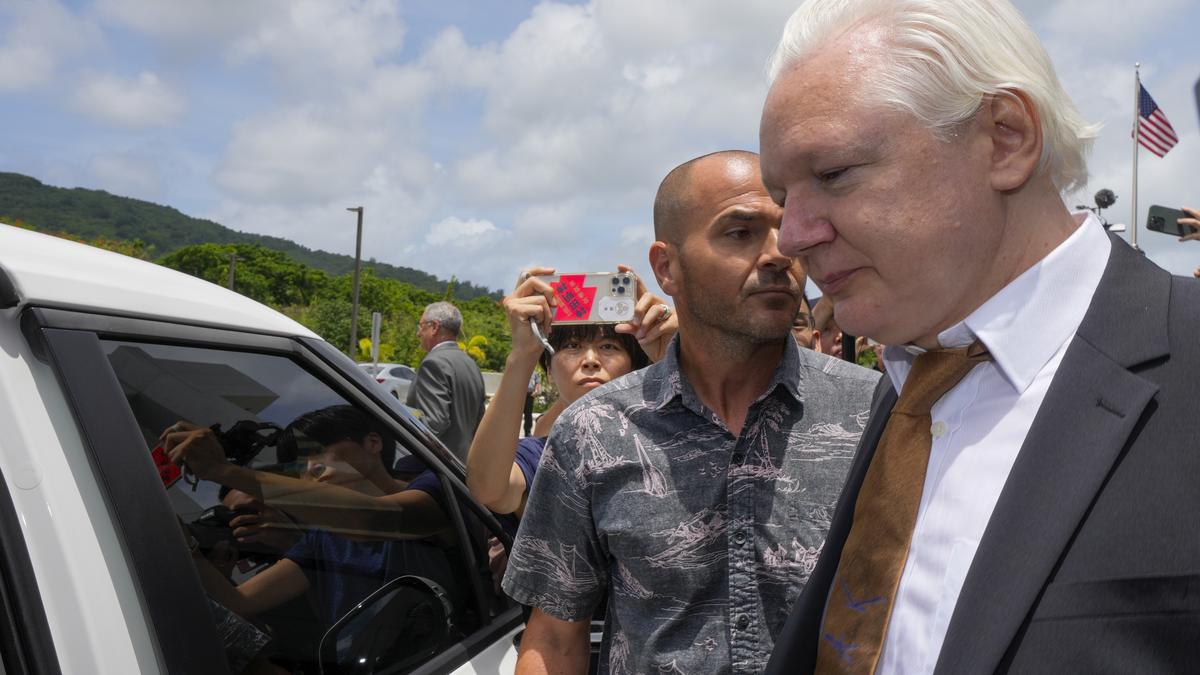
WikiLeaks’ Assange pleads guilty in deal with U.S. that secures his freedom, ends legal fight
The Hindu
Julian Assange pleads guilty to U.S. military secrets charges, avoids prison, and returns to Australia.
WikiLeaks founder Julian Assange pleaded guilty to obtaining and publishing U.S. military secrets in a deal with Justice Department prosecutors that secured his liberty and concluded a drawn-out legal saga that raised divisive questions about press freedom and national security.
The criminal case of international intrigue, which had played out for years in major world stages of Washington and London, came to a surprise ending in a most unusual setting with Mr. Assange, 52, entering his plea on June 26 morning in federal court in Saipan, the capital of the Northern Mariana Islands. The American commonwealth in the Pacific is relatively close to Mr. Assange's native Australia and accommodated his desire to avoid entering the continental United States.
Read | Julian Assange: A journalist or an enemy of the U.S. State?
The deal required the iconoclastic internet publisher to admit guilt to a single felony count but also permitted him to return to Australia without any time in an American prison. The judge sentenced him to the five years he'd already spent behind bars in the United Kingdom, fighting extradition to the United States on an Espionage Act indictment that could have carried a lengthy prison sentence in the event of a conviction. He was holed up for seven years before that in the Ecuadorian Embassy in London.
He smiled slightly as U.S. District Judge Ramona Manglona imposed the sentence, pronouncing him a “free man."
The conclusion enables both sides to claim a degree of satisfaction. The Justice Department, facing a defendant who had already served substantial jail time, was able to resolve — without trial — a case that raised thorny legal issues and that might never have reached a jury at all given the plodding pace of the extradition process. Mr. Assange, for his part, signalled begrudging contentment with the resolution, saying in court that though he believed the Espionage Act contradicted the First Amendment, he accepted the consequences of soliciting classified information from sources for publication.
Jennifer Robinson, one of Mr. Assange’s lawyers, told reporters after the hearing that the case “sets a dangerous precedent that should be a concern to journalists everywhere.”











